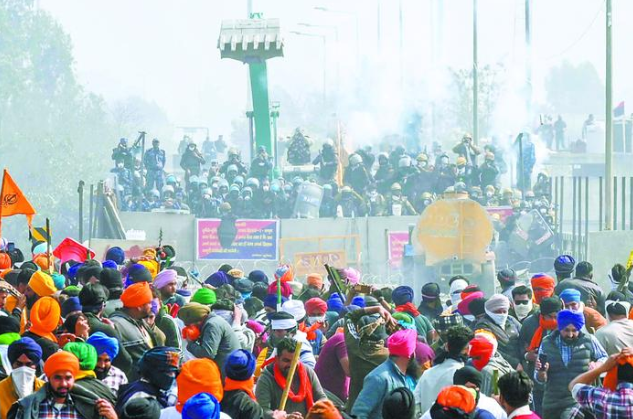Indian Farmers Resume Protest Actions, Who is Leading the “March into New Delhi”?
After four rounds of talks failed to yield satisfactory results, Indian farmers stationed at the border areas of Punjab and Haryana resumed their “March into New Delhi” protest activities. Thousands of farmers, under the cover of cranes and excavators, advanced along the highways. Haryana state police fired tear gas at protesting farmers at the border areas, and numerous barricades were set up along the highways.

According to The Indian Express, one of the leaders of this protest, Pender, publicly demanded on the 21st that Indian Prime Minister Modi or Home Minister Amit Shah make a statement regarding legislation to ensure minimum support prices for agricultural products. He stated that the farmers made Modi the Prime Minister of India, and now “the nation will not forgive such a government.” Another farmer leader, Daruval, called on the Indian government to remove the barricades and allow the protesting farmers to advance towards New Delhi.
The Indian Print reports that Pender is the Secretary-General of the Kisan Mazdoor Sangharsh Committee, an organization established in 2007, previously active mainly in the Amritsar region of Punjab and influential among farmer and labor groups in several areas of Punjab. Pender, a native of Amritsar and a leader of the landless laborers during his student days, has always supported the interests of farmers. He owns about 6070 square meters of land.
Daruval is the chairman of the Indian Kisan Union, one of the 32 farmer organizations in Punjab. He has been the chairman of the Kisan Union since 2017 and has led the organization in forming the “United Front of Indian Farmers’ Unions” with other farmer groups. Moreover, Daruval is considered to have close relations with the Chief Minister of Punjab.
In 2020, a massive protest conflict between Indian farmers and the government erupted, eventually leading to a compromise by Modi’s government. The farmer groups that led the protest in 2020 fell into division due to internal disagreements, with many farmer leaders adopting a wait-and-see attitude in the current protest. On the 21st, the Indian Federal Minister of Agriculture, Arjun Munda, invited farmer leaders for the fifth round of talks, urging them to find a solution through “dialogue.”